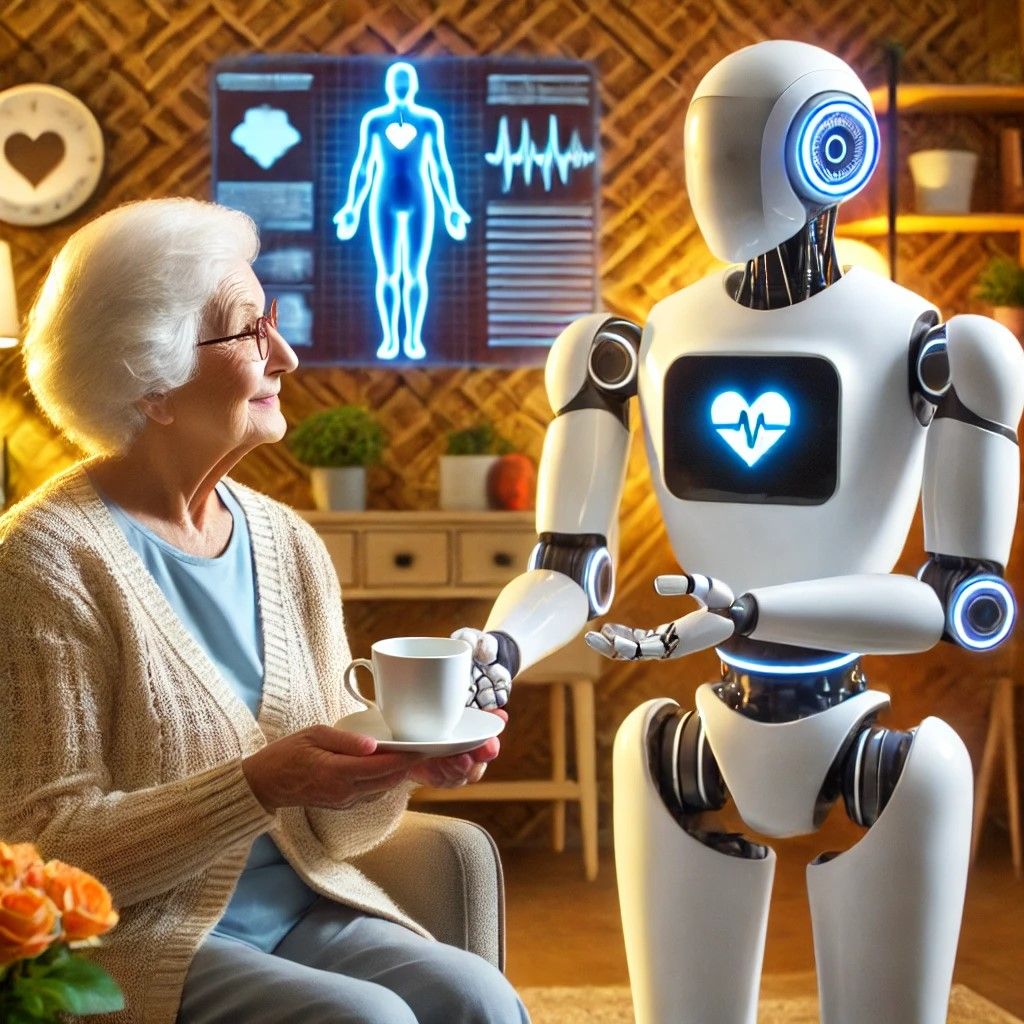China is already making moves to deploy robots for elderly care, and let me tell you—this is going to be a big deal. Not just in China, but in the U.S. and beyond. The reality is that we’re facing a massive demand for elderly care, driven by the aging Baby Boomer population, and we simply don’t have enough caregivers to meet the need.
It’s not a matter of if robots will step in, but when.
The Problem: More Seniors, Fewer Caregivers
The U.S. is on the brink of a demographic shift. By 2030, all Baby Boomers will be 65 or older, and many will require some level of daily assistance. At the same time, we’re experiencing a caregiver shortage—nursing homes are struggling to staff up, and home healthcare agencies can’t keep up with demand.
And here’s the kicker: most elderly people don’t want to leave their homes. They’d much rather age in place than move into a senior living facility. But aging in place requires consistent, reliable care, and that’s where robotics will play a critical role.
Why Robots Make Sense for Senior Care
Once we get robots safe enough, affordable enough, and capable enough, they will absolutely become a mainstream solution for elder care. Imagine humanoid robots that can assist with daily tasks—helping seniors out of bed, preparing meals, administering medication, and even providing companionship.
This isn’t science fiction. The technology is progressing fast. AI-powered robotics are already being developed to assist with mobility, monitor health, and provide emergency response in case of a fall. It’s only a matter of time before these solutions become widespread.
A Huge Business Opportunity
Companies that can crack the code on affordable, safe, and effective eldercare robots will be sitting on a goldmine. This is a massive market opportunity. The demand is there. The need is there. The question is: who’s going to deliver the right solution first?
China is already laying the groundwork, and the U.S. won’t be far behind. As someone in the robotics industry, I see this as a major growth sector that will explode over the next decade. Startups, investors, and big tech should be paying close attention—because eldercare robotics isn’t just a cool innovation; it’s going to be a necessity.
The bottom line? Robots will take care of seniors in their homes, and in many ways, that could lead to a better quality of life. Aging in place, with the right support, could be the best option for millions of people. The only question now is: who will lead the charge?
Related article: https://biz.chosun.com/en/en-international/2025/02/13/NSVVB64AE5EQBNGGPB5XAAYWVI/

